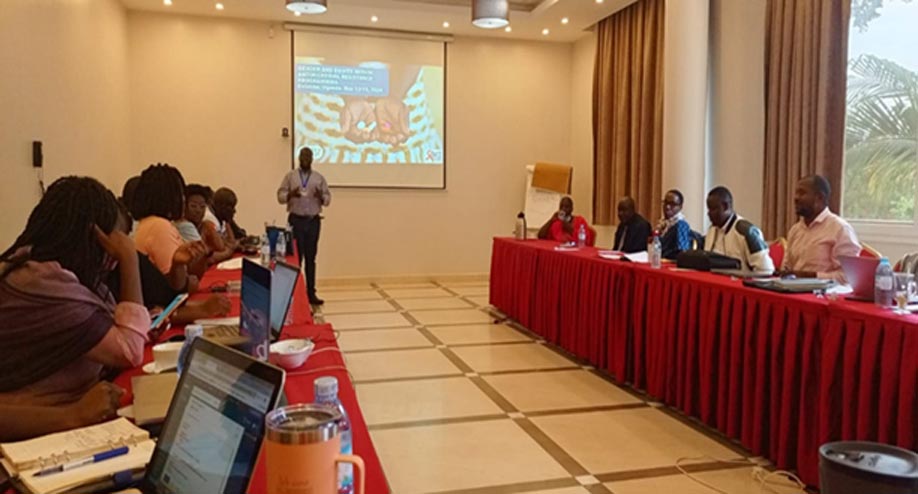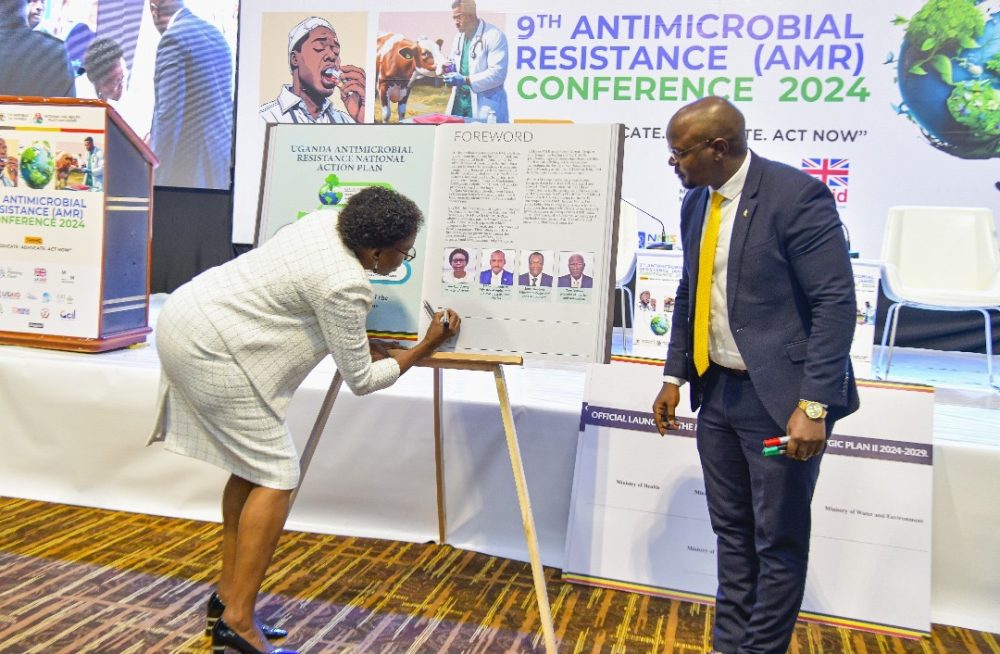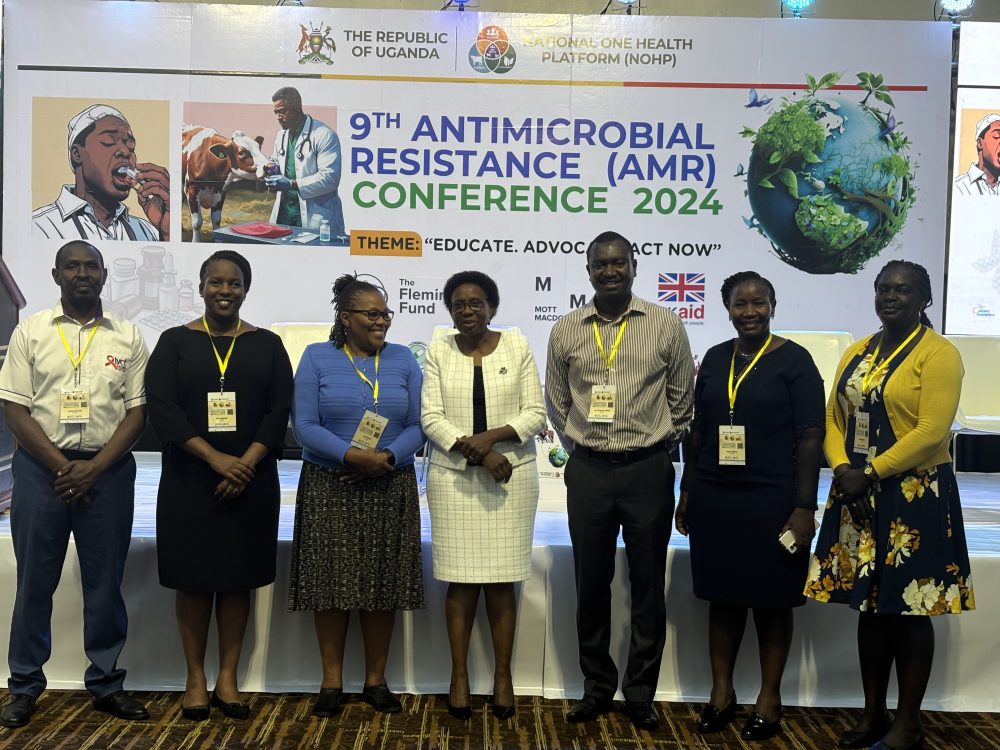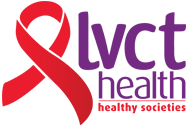
In this blog Susan Okioma and Anne Ngunjiri discuss their time spent in Uganda during World AMR Awareness Week, with the National AMR Sub-Committee, looking at Uganda’s National AMR Action Plan and integrating gender and equity into AMR programming.
Antimicrobial resistance (AMR) is one of the most pressing global health challenges, threatening decades of medical progress and disproportionately affecting low- and middle-income countries. In East Africa, AMR not only undermines public health systems but also exacerbates inequities in access to healthcare. Addressing AMR requires not just scientific innovation but also a people-centred approach that integrates gender and equity into programming.
Recognising this need, Uganda’s National One Health Platform took a significant step towards revolutionising its fight against AMR by hosting a transformative workshop that focused on integrating gender and equity into the country’s AMR surveillance frameworks and action plans. The meeting held from the13th to 15th November 2024 in Entebbe was attended by the Technical Working Group (TWG) members and the AMR Secretariat members.
In his opening remarks, the chairman of the National AMR Sub-Committee (NAMRSC) Ibrahim Mugerwa captured the essence of the workshop’s purpose by stating, “AMR isn’t just about pathogens and drugs—it’s about people and the systems that affect their lives. This workshop reminds us why it’s critical to include everyone in the fight against AMR, especially the most vulnerable ensuring no one is left behind in accessing the care and protection they deserve.” Similarly, the program manager at the Baylor College of Medicine, Rogers Kisame added, “This workshop marks a turning point in how we approach AMR programming. By integrating gender and equity considerations, we’re addressing the root causes of disparities and building a stronger, more inclusive foundation for combating antimicrobial resistance in Uganda.”
The TWG workshop brought together stakeholders to review and revise Uganda’s AMR National Action Plan and surveillance tools, ensuring that they address the unique vulnerabilities and disparities affecting different populations, thereby setting the stage for more inclusive and effective AMR responses.
Antimicrobial resistance (AMR) is one of the most pressing global health challenges, threatening decades of medical progress and disproportionately affecting low- and middle-income countries. In East Africa, AMR not only undermines public health systems but also exacerbates inequities in access to healthcare. Addressing AMR requires not just scientific innovation but also a people-centred approach that integrates gender and equity into programming.
Recognising this need, Uganda’s National One Health Platform took a significant step forward toward revolutionising its fight against AMR by hosting a transformative workshop that focused on integrating gender and equity into the country’s AMR surveillance frameworks and action plans. The meeting held from 13th to 15th November 2024 in Entebbe was attended by the Technical Working Group (TWG) members and the AMR Secretariat members.
In his opening remarks, the chairman of the National AMR Sub-committee (NAMRSC) Ibrahim Mugerwa captured the essence of the workshop’s purpose by stating, “AMR isn’t just about pathogens and drugs—it’s about people and the systems that affect their lives. This workshop reminds us why it’s critical to include everyone in the fight against AMR, especially the most vulnerable ensuring no one is left behind in accessing the care and protection they deserve.” Similarly, the program manager at the Baylor school of medicine, Rogers Kisame added “This workshop marks a turning point in how we approach AMR programming. By integrating gender and equity considerations, we’re addressing the root causes of disparities and building a stronger, more inclusive foundation for combating antimicrobial resistance in Uganda.”
The TWG workshop brought together stakeholders to review and revise Uganda’s AMR National Action Plan and surveillance tools, ensuring that they address the unique vulnerabilities and disparities affecting different populations, thereby setting the stage for more inclusive and effective AMR responses.

The workshop achieved several objectives:
- Building Capacity on Gender, Equity, and Intersectionality: Stakeholders were equipped with essential knowledge on gender and equity concepts, emphasizing the importance of incorporating these principles into AMR programming. Participants explored how social determinants such as gender, socio-economic status, and disability intersect to influence susceptibility to drug-resistant infections, health-seeking behaviours, and antimicrobial consumption. This session underscored the need for AMR surveillance to evolve beyond a focus on “bugs and drugs” toward people-centered, equitable practices grounded in effective governance, multisectoral collaboration, and evidence-based strategies.
- Applying an intersectional lens to AMR risks: The workshop introduced participants to the concept of intersectionality, providing insights into how overlapping factors shape vulnerabilities to AMR risks. By recognizing the varied risks faced by different populations, this approach ensures that AMR interventions do not inadvertently create inequities. Participants discussed practical applications, paving the way for solutions that promote gender equality and address social determinants in AMR strategies.
- Strengthening Uganda’s AMR Action Plans and Surveillance Tools: Through a collaborative review process, stakeholders examined key national documents, including:
- The Uganda Antimicrobial Resistance National Action Plan (2024–2029)
- The National Antimicrobial Resistance Surveillance Plan for Human Health (2019–2023)
- Various implementation and monitoring tools, such as laboratory registers, test request forms, and Point Prevalence survey Form.
- Fostering collaboration for inclusive AMR programming: Discussions emphasized the importance of partnerships among the Ministry of Health, private sector actors, and implementing partners to ensure sustained, inclusive AMR programming. These collaborations aim to create shared accountability and collective action in addressing AMR challenges across sectors.
- Drafting a framework for Gender and Equity Integration: The development of a draft Terms of Reference (ToR) for a Gender and Equity Focal Team marked a significant step forward. This team will serve as a guiding body to ensure that gender and equity considerations are systematically integrated into Uganda’s AMR programming, reflecting a long-term commitment to inclusivity and sustainability.
This workshop demonstrated that integrating gender and equity into AMR programming is not just an ethical imperative but also a practical necessity for effective interventions. By embracing intersectionality, fostering collaboration, and refining national plans, Uganda is setting the stage for a more inclusive and impactful response to antimicrobial resistance.
Role of LVCT Health in Uganda’s AMR Programming
LVCT Health, as the East Africa Regional Lead for the GEAR UP project under the Fleming Fund Phase II, has been instrumental in driving the integration of gender and equity into Uganda’s AMR programming. Recognising the critical gaps in AMR frameworks and tools, LVCT Health provided targeted technical assistance during the workshop, ensuring that gender and equity considerations became central to Uganda’s AMR response strategies.
As part of its role, LVCT Health led by their Gender and Equity expert, facilitated the comprehensive capacity-building sessions for the TWG members. These sessions focused on equipping participants with foundational knowledge of gender and equity concepts, why they are essential for AMR programming, and how to apply them in practice. The team emphasised the importance of intersectionality, illustrating how overlapping factors such as gender, socio-economic status, and disability influence AMR risks, health-seeking behaviours, and treatment access. This holistic understanding enabled stakeholders to review key AMR documents and surveillance tools effectively using a gender and equity lens.
LVCT Health also guided the revision of critical documents, such as the Uganda AMR National Action Plan and surveillance tools, ensuring they addressed gaps in data disaggregation and incorporated variables beyond sex and age, such as education, marital status, and disability. By leading these efforts, LVCT Health strengthened Uganda’s capacity to adopt inclusive and responsive AMR programming. This initiative highlights LVCT Health’s commitment to embedding gender and equity considerations in a systematic and sustainable manner, not just in Uganda but across the East Africa region. Through its leadership in the GEAR UP project, LVCT Health continues to play a pivotal role in fostering inclusive and equitable health systems to combat AMR.

Launch of the Uganda AMR Action Plan
On November 20, 2024, the Uganda National Action Plan for the Containment and Prevention of Antimicrobial Resistance 2024-2029 was officially launched alongside the AMR Strategic Plan at the 9th Antimicrobial Resistance Conference 2024, themed “Educate, Advocate, Act Now.” These documents were endorsed by the ministry directors of the One Health Platform, including the Ministry of Health, the Ministry of Agriculture, Animal Industry & Fisheries, the Ministry of Water & Environment, and the Ministry of Tourism, Wildlife & Antiquities. This significant milestone underscores Uganda’s commitment to a coordinated and inclusive approach in the fight against AMR, signaling the government’s dedication to taking decisive action against this critical public health threat.

The event brought together development partners, collaborators, implementing partners, academia, and community-level stakeholders, creating a platform to reflect on Uganda’s progress in addressing AMR. The conference provided an opportunity to align these plans with the outcomes of the recent workshop, particularly regarding the integration of gender and equity considerations into AMR programming.
The revised National Action Plan (NAP), informed by the workshop outcomes, represents a significant transformation—shifting from a gender-blind framework to a gender-responsive one. By incorporating gender and equity considerations, the NAP now addresses the unique vulnerabilities and needs of diverse populations, ensuring that AMR interventions are inclusive and effective. Stakeholders emphasized that the reviewed plans and tools will guide Uganda in addressing vulnerabilities and ensuring that AMR interventions are equitable, evidence-based, and sustainable.

Additionally, the launch was celebrated as a call to action, encouraging stakeholders to advocate for the successful implementation of the AMR plans and foster multi-sectoral collaboration at every level. This significant step underscored the importance of aligning national efforts with global strategies for combating AMR, ensuring that Uganda remains at the forefront of inclusive and innovative AMR solutions in the region.
Stakeholder Engagement, Reflections, and Lessons Learned
There was a general appreciation for the gender and equity component introduced during the workshops, with participants noting that AMR programming had initially been gender-neutral/blind. The sensitization sessions on gender, equity and intersectionality to AMR provided the participants a clear understanding of why these elements is critical for effective and inclusive AMR programming. Participants widely appreciated the in-country technical support provided by LVCT Health as part of the GEAR UP team, acknowledging their efforts in reviewing key documents, facilitating sensitization sessions, and providing actionable recommendations. This engagement laid the foundation for continued collaboration and strengthened the resolve to mainstream gender and equity into AMR programming at all levels. Participants strongly emphasized the need for continuous capacity-building efforts on gender and equity programming in AMR. They noted that sustained training and technical support are essential for embedding these principles into programming at all levels, ensuring long-term impact and inclusivity.

This engagement also helped stakeholders recognize the importance of data disaggregation beyond sex and age to include variables such as education, marital status, and disability, enabling a more nuanced approach to addressing disparities. Many participants found the concept of intersectionality transformative, with one microbiologist reflecting, “Just sitting here and listening to the gender and equity angle of AMR and the concept of intersectionality is such an eye-opener. As a microbiologist, my focus has been on pathogens, specimen, samples and isolates. It would be beneficial to think beyond bugs and drugs, as you have mentioned, and to put a human face behind the samples collected.”
The workshop further emphasized the need for collaboration across sectors. Stakeholders agreed that sustainable and inclusive AMR programming requires collective action, drawing on the strengths of government bodies, private sector actors, and implementing partners. One doctor remarked “ This gender and equity component stayed too long in Nairobi, it should have come much earlier as it is going to change the direction and quality of AMR programming in this country in such a positive way; this is the paradigm shift needed for Uganda to make meaningful progress in AMR initiatives in this country.”
The outcomes highlighted the importance of sustained technical support, ongoing stakeholder engagement, and the systematic integration of gender and equity into AMR frameworks, ensuring that interventions are inclusive and address the diverse needs of affected populations.
The development of a draft Terms of Reference (ToR) for a Gender and Equity focal team was discussed, providing a framework to guide ongoing efforts in integrating gender and equity into AMR programming. This step reflects the commitment of stakeholders to embedding these principles systematically into future initiatives.
Looking Ahead: Sustaining Progress in Gender and Equity Integration in Uganda’s AMR Programming
Building on the achievements of the workshop and the launch of the revised AMR National Action Plan, Uganda is committed to deepening gender and equity integration within its AMR programming. To ensure sustained progress, several priority actions have been identified:
- Building the capacity of the TWG on gender and equity through targeted training and resources enabling them to integrate strategic gender and equity consideration into all aspects of AMR programming.
- Enhance continuous consultation and stakeholder engagement from diverse sectors to promote inclusive decision-making and foster collaboration.
- Provide extended technical support from the GEAR UP team aimed at fully integrating gender-responsive and equity-focused AMR programming in Uganda.
- Establishing and empowering gender and equity champions to advocate for and drive the integration of gender and equity at every level of AMR programming
Acknowledgements: The content of this blog was reviewed by the following to ensure accuracy of content and relevance: Jane Thiomi, Dr Cleophas Ondieki, Pacific Owoundo, Anthony Mwaniki and Festus Mutua.
Suggested citation: Susan Okioma & Anne Ngunjiri. “Moving beyond bugs and drugs: gender and equity integration into antimicrobial resistance programming in Uganda”. LVCT Health/GEAR UP Blog December 2024
Disclaimer: GEAR up is funded by the Department of Health and Social Care (DHSC)’s Fleming Fund using UK aid. The views expressed on this website are those of the authors and not necessarily those of the UK DHSC or its Management Agent, Mott MacDonald.
